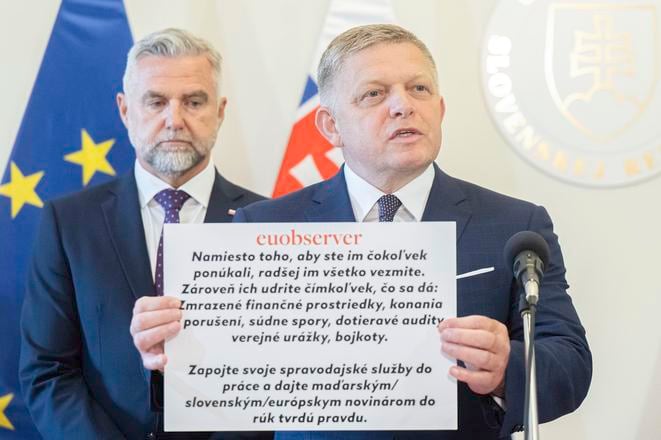The information that the British advertising agency Zinc Network allegedly influenced elections in Slovakia through influencers and journalists – a claim Prime Minister Robert Fico made upon his return from holiday – could sound alarming.
It gains a veneer of relevance because it was published by the investigative outlet Declassified UK. In the middle of the summer, PM Fico is attempting to turn this into a key domestic political issue.
At least, until we know the facts. The case had nothing to do with journalists, despite the impression Fico sought to create, a point confirmed by Martin Williams, the author of the original investigation.
As for the funds directed to influencers, this in fact related to the long-standing Election Calculator project run by the organisation Memo98. The influencers’ role was limited to participating in promotional videos encouraging the use of this voter decision-making tool. Moreover, Memo98 makes no secret of its cooperation with Zinc Network, transparently listing it on its website.
We could close this pseudo-scandal here, but let us add three final points.
Encouraging voter turnout should be in the interest of every democratic government.
Equally, Zinc Network – which supported this campaign – has long been active in fighting disinformation and the Russian hybrid threat, something that too should be in the interest of any democratic government.
It is understandable why Fico dislikes this. He is not a democrat; he does not want young people voting, and he certainly does not want to fight against disinformation and the Russian hybrid threat, which he himself supports.
Now let us turn to what truly matters for Slovakia and what Fico does not want to discuss.


 PM Robert Fico during a press conference in Bratislava on 29 July 2025 (source: TASR - Martin Baumann)
PM Robert Fico during a press conference in Bratislava on 29 July 2025 (source: TASR - Martin Baumann)